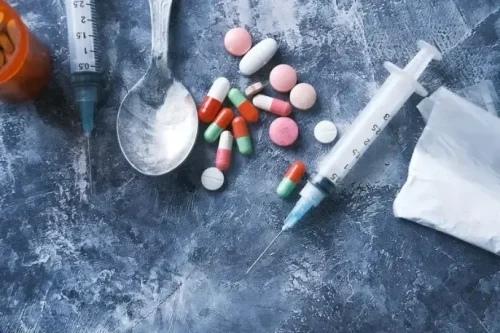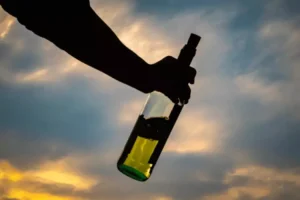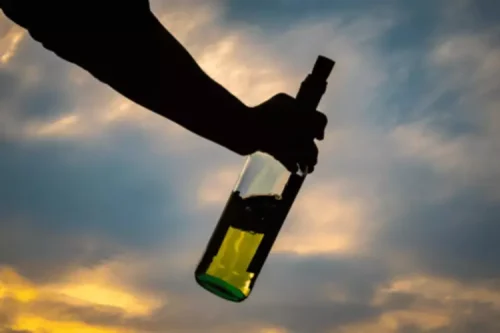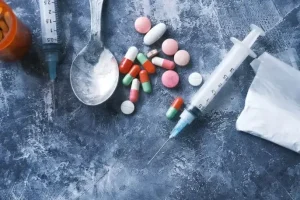
The efficacy of these drugs for anxiety treatment has been established firmly in well-controlled, randomized clinical trials. However, it is important to note that these studies typically exclude people with AUDs—a requisite standard practice to enhance the internal validity of efficacy studies. This exclusion means, however, that treatment providers must Halfway house use clinical judgment when prescribing these medications to comorbid patients. Third, different comorbidity patterns exist among patient subgroups with different demographic characteristics such as race/ethnicity and gender. For example, in the NESARC, Native Americans had elevated rates both of anxiety disorders and of AUDs over the past 12 months but lower rates of co-occurrence between these disorders compared with other ethnic groups (Smith et al. 2006).
Effects of co-occurrence on alcohol treatment outcomes
- Both conditions respond well to preventive measures, many of which overlap and benefit overall health.
- Risk of schizophrenia, panic attacks, increased depression symptoms, and psychosis.
- During these episodes, your sympathetic nervous system floods your body with stress hormones like adrenaline, causing physical reactions including increased heart rate, rapid breathing, and muscle tension.
- This insularity and particularism continue to impose significant opportunity costs in this field.
For those who have an alcohol use disorder, it’s a symptom of alcohol withdrawal syndrome. At Talkiatry, our psychiatrists can treat patients with mental health conditions such as anxiety or depression and substance use disorders that occur at the same time. Treating these conditions is a critical part of treating substance use disorder. When you experience alcohol-induced panic attacks, this cycle can become even more frightening and potentially result in a long-term panic disorder. If you find it difficult to reduce or completely stop your alcohol consumption even after experiencing alcohol-induced panic attacks, you may be dealing with physical or psychological addiction and should consider seeking treatment.

Development of Comorbid Anxiety and AUDs
In this opponent process model, the term “addiction” refers to the neurobiological and motivational changes that occur as a consequence of chronic substance use. However, restricting attention to a single diagnosis and its relationship to alcohol misuse does not align with more recent research. Only one notable study of COA’s has demonstrated a higher-than-expected risk for these major psychiatric disorders. However, as pointed out by Kushner (1996), larger studies of COA’s who have passed the age of risk for most disorders will need to be conducted before final conclusions can be drawn. About 3.1% of the U.S. population is affected by generalized anxiety disorder, according to the Anxiety & Depression Association of America. If you’re feeling nervous about being in a social setting, you may pour yourself a glass of wine to self-regulate any stress.

How do I stop anxiety after drinking?
Self-medicating your panic attacks in this way can leave you psychologically dependent on alcohol, as you come to rely on it to keep your anxious thoughts and feelings at bay. You may have already found that you’re having to drink larger quantities to get rid of your anxiety, or are now drinking to stave off withdrawal symptoms. Sleep disturbances, including insomnia and poor sleep quality, affect 60-80% of individuals with alcohol-induced anxiety disorder. While alcohol initially acts as a sedative, helping people fall asleep faster, it disrupts the sleep cycle, particularly REM sleep, leading to fragmented and non-restorative sleep. Sleep disturbances are more common during withdrawal and can persist for weeks or months after stopping alcohol consumption. Compared side by side, these proposed causal models provide competing explanations for the joint development of anxiety disorders and AUDs.
Traditional ways of treating anxiety

In contrast, panic attacks stem from your body’s fight-or-flight response gone awry. During these episodes, your sympathetic nervous system floods your body with stress hormones like adrenaline, causing physical reactions including increased heart rate, rapid breathing, and muscle tension. While intensely uncomfortable and frightening, panic attacks don’t cause physical damage to your heart. Exposure to feared stimuli is a powerful and active treatment ingredient that is recommended across the spectrum of anxiety disorders. Although the specific cues differ, application of exposure for each disorder generally involves repeated presentation of feared stimuli until the patient has become used to them (i.e., habituation is reached), resulting in extinction of the fear response. The technique largely is effective because when clients who typically avoid and/or escape from situations that lead to anxiety are exposed to these situations for prolonged periods, they encounter corrective information that previously was unavailable.
If you need help covering the cost of medications, Optum Perks free Discount Card https://ecosoberhouse.com/ could help you save up to 80% on prescription drugs. Follow the links on drug names for savings on that medication, or search for a specific drug here. Both conditions respond well to preventive measures, many of which overlap and benefit overall health.
Alcohol can decrease your blood sugar levels
If you rely on alcohol to mask anxiety, you may find you become reliant on it to relax – putting you at risk of alcohol dependence. Dr. Lin received his medical degree from St. George’s University School of Medicine. He went on to complete his residency in psychiatry at Harvard South Shore, an affiliate of Harvard Medical School, where he served as Chief Resident and earned his 360° Professionalism award. He then had additional training in Addiction Psychiatry through his fellowship at the University of Texas Southwestern Medical Center. After completing training, Dr. Lin has worked as an Addiction Psychiatrist and Director of Adult Services in the Trauma and Resilience Center (TRC) at the University of Texas Health Science Center at Houston (UTHealth). He specialized in treating patients with a history of depression, anxiety, trauma, and substance use disorders.
- Cutting out alcohol will help you cope better, and should reduce the likelihood of experiencing a panic attack, but it won’t stop them altogether.
- Naltrexone is typically prescribed for patients trying to reduce or stop alcohol consumption.
- Thus, previous research has suggested that parallel psychosocial treatments for anxiety and AUDs may be too demanding for clients, which can negatively influence treatment outcomes (,Randall et al. 2001).
- Sweating is more common in individuals undergoing severe withdrawal or those with a long history of heavy alcohol use.

People experiencing their alcohol and panic attacks first-ever panic attack often have no frame of reference, making the episode particularly frightening. Without previous history, many understandably assume the worst—that they’re having a heart attack—and seek emergency care. Most heart attacks begin with mild discomfort that gradually intensifies.
- Support for the role of genetic factors as a cause for the co-presence of these disorders indirectly has been provided by family and twin studies (e.g., Merikangas et al. 1994, 1996; Tambs et al. 1997).
- Caffeine Addicts Anonymous is a fellowship dedicated to helping individuals overcome caffeine addiction.
- Other potential risks of drinking while on antidepressants include becoming sedated or drowsy and having increased depressive symptoms because, as mentioned, the effects of the alcohol can lessen or diminish the benefits of the medication.
- If you are concerned that you are experiencing panic attacks as a result of your alcohol consumption, it is recommended that you cut down or completely stop drinking.
- Young, seemingly healthy individuals occasionally experience cardiac events, particularly with undiagnosed conditions like congenital heart abnormalities.
Description of Alcohol-Induced Anxiety Disorder
While many people do feel some anxiety after drinking, regular alcohol-induced panic attacks are a serious matter. Fluoxetine, another SSRI, helps balance serotonin levels to alleviate anxiety and depression. It is frequently used to treat anxiety disorders, including those triggered by alcohol use. Often considered a first-line treatment for alcohol-induced anxiety disorder, sertraline is particularly effective for individuals with chronic anxiety. Additionally, discuss your use of alcohol with a healthcare provider or mental health professional who can screen you for alcohol use disorder and help guide you to appropriate treatment. Many people recover from alcohol dependence and alcohol use disorder with proper medical supervision.